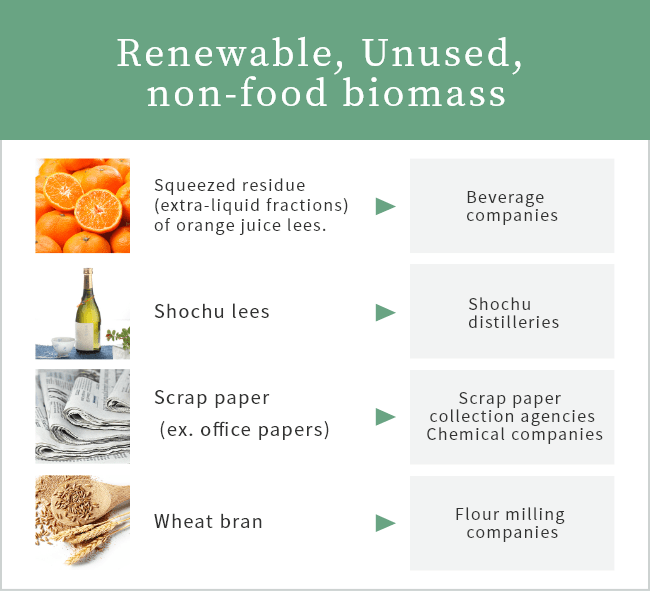Non-food biomass resources
Utilization of Non-food biomass resources to Achieve Carbon Neutral

Substitution of petroleum feedstock by renewable, non-food biomass resources is a crucial step toward the realization of carbon neutrality.
(→Especially in Japan, where resources are limited), considering and securing the use of renewable, unused, non-food biomass resources in bioprocesses that do not compete with available food resources is essential for achieving bioproduction.
Ocellulosic biomass requires pretreatment and enzymatic saccharification.
However, lees from mandarin orange juice and shochu alcohol production do not require enzymatic saccharification and can be used as-is. From a recycling perspective, it is preferable to make effective use of the lees that are currently disposed of as industrial waste. As the cost of feedstock in bioproduction accounts for a large portion of production expenses, utilizing these resources is essential for reducing feedstock costs.
In addition, we also have surpluses of scrap paper and wheat bran, which we consider to be promising potential non-food biomass resources.
